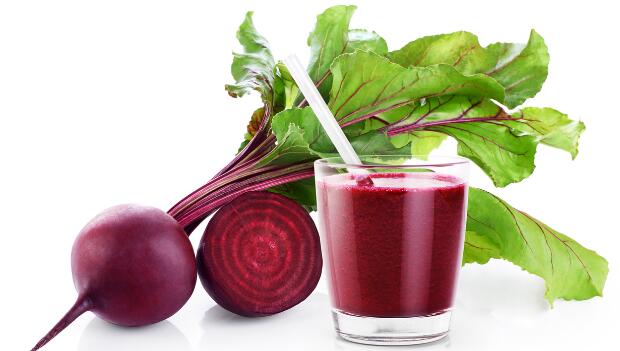
Beet juice and nitrates have been gaining more and more attention for their ability to improve athletic performance and reduce blood pressure. It's been well documented for some time now that a diet rich in vegetables can improve cardiovascular health, due to high nitrate content. While all vegetables contain some nitrates, they are more abundant in beets, leafy greens, spinach, celery, endives, fennel, arugula (rocket or rucola), leeks and parsley.
Several studies have now confirmed the effects of nitrates on athletic performance including a study done at the University of Exerter's School of Sport and Health Sciences, using beet juice. The study looked at eight male cyclists consuming half a liter (500ml) of beet juice (approx. 2 cups), containing nearly 700 mg of naturally occurring nitrate, for six days. The control group with the placebo drank 500 ml of black currant cordial containing very minimal nitrates for the same amount of time.
Cycling Events Near You
More: The Importance of an Athlete's Digestive System
The cyclists completed a series of "stepped" moderate-intensity and severe-intensity exercise tests on a cycling ergometer during the last three days of this period. On the fourth day of supplementation, subjects completed two bouts of moderate cycling, while on days five and six the subjects completed one bout of moderate cycling and one bout of severe cycling. In the severe cycling test, the loading was increased by 30 watts per minute until the subject could no long continue. After this six-day period, subjects underwent a 10-day 'washout' period during which neither beetroot juice nor cordial were consumed, then the supplement protocol was reversed (those who had taken beetroot took cordial and vice-versa).
More: Top 8 Fuels to Power Your Summer
Throughout this time, all subjects refrained from eating any high-nitrate foods to ensure that any differences were due to the beetroot juice.
The beet juice group was able to cycle an average of 16 percent longer. The men also had lower resting blood pressure after consuming the beet juice compared to the currant juice. The author, Professor Andy Jones, noted: "Our study is the first to show that nitrate-rich food can increase exercise endurance. We were amazed by the effect of beet juice on oxygen uptake because these effects cannot be achieved by any other known means, including training."
More: How to Build a Sports Nutrition Plan


